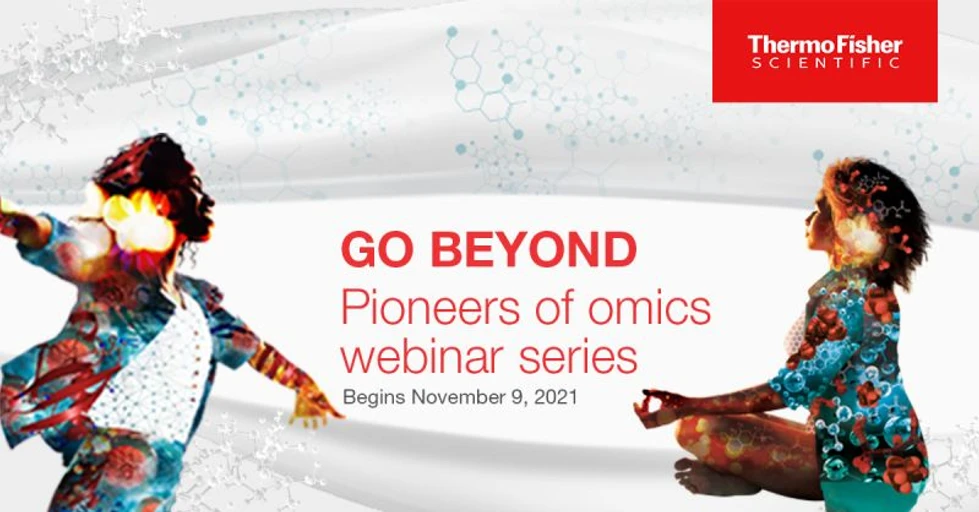Interactomics/Spatial Omics

Understanding the interactions of proteins and other biological agents within a cell is vital to understanding the biology. It’s also clear these happen in a heterogeneous way and the abilty to study localisations of systems can provide vital knowledge. New advances across the analytical range from chromatography, mass spectrometry to intelligent software systems are changing the way analyses are being performed and allowing for continuing progress.
Presentations:
Spatial Single-Cell metabolomics reveals Metabolic Cell States
- Theodore Alexandrov, Team leader at European Molecular Biology Laboratory (EMBL), Heidelberg
Approaching main bottlenecks in the field of crosslinking mass spectrometry
- Manuel Matzinger, Research Institute of Molecular Pathology (IMP), Vienna, Austria
Mapping cellular responses through proteome thermal stability changes
- Alexey Chernobrovkin, Senior Research Scientist, Pelago Bioscience, Sweden
Quantitative proteomics strategies to study adult stem cells and their niches in the context of aging
- Alessandro Ori, Leibniz Institute on Aging – Fritz Lipmann Institute (FLI)
Dissecting RNA-Protein interactions in space and time
- Eneko Villanueva, Cambridge Center for Proteomics, Department of Biochemistry, University of Cambridge
Learning points:
- Latest advances in protein interactions
- Latest advances in single cell studies
- Optimising strategies to maximise research performance with confidence
Who should attend:
- Researchers in proteomics labs
- Researchers in metabolomics labs
- Laboratory directors, managers and technicians interested in state-of-the-art single cell analysis
Presenter: Theodore Alexandrov (Team leader, European Molecular Biology Laboratory (EMBL), Heidelberg)
Theodore Alexandrov is a team leader at the European Molecular Biology Laboratory (EMBL), the Europe’s leading life science laboratory. He is also the head of the EMBL Metabolomics Core Facility and an Assistant Adjunct Professor at the Skaggs School of Pharmacy, University of California San Diego, USA. The Alexandrov team at EMBL aims to reveal the secrets of metabolism in time and space in tissues and single cells by developing experimental and computational methods. The team unites interdisciplinary scientists from biology, chemistry, and computer science as well as software engineers and data analysts. The developed computational methods are integrated into various open-source and industrial software packages. Since 2014, the team develops and provides for free the cloud software METASPACE for metabolite ID in imaging mass spectrometry, used by universities, governmental organizations, and pharma companies. Theodore Alexandrov is a grantee of an ERC Consolidator project focused on studying metabolism in single cells, as well as of various other European, national, NIH, and industrially-funded projects. He has co-founded and scientifically directed the company SCiLS and has over 80 journal publications and 6 patents in the field of spatial and single-cell -omics.
Presenter: Manuel Matzinger (Research Institute of Molecular Pathology (IMP), Vienna, Austria)
Manuel is a trained chemist and postdoctoral researcher at the Institute of Molecular Pathology (IMP) in Vienna, uncovering hidden protein-protein interaction networks and keen to find and improve methods in the field of cross-linking mass spectrometry. His research mainly focuses on the development of affinity enrichment strategies, the design of novel cross-linker scaffolds as well as the optimisation and evaluation of data analysis algorithms.
Presenter: Alexey Chernobrovkin (Senior Research Scientist, Pelago Bioscience, Sweden)
With a background in applied physics (MSc, MIPT, Moscow), got my PhD in Bioinformatics (Institute of Biomedical Chemistry, Moscow) and then moved for a postdoc at Karolinska Institutet, Stockholm in the group of Roman Zubarev. After that joined Pelago Bioscience as Senior Scientist to work on development and application LC-MS based methods for proteome-wide deconvolution of targets and mechanism of action (MoA) of bioactive compounds.
Presenter: Alessandro Ori (Leibniz Institute on Aging, Fritz Lipmann Institute (FLI))
Alessandro Ori holds a PhD in Biochemistry and he was a postdoctoral fellow at the European Molecular Biology Laboratory in the laboratory of Martin Beck. During his postdoc, he applied mass spectrometry-based proteomics to answer fundamental questions in the fields of structural and systems biology, and pioneered the integration of omics data to study aging. He joined the Leibniz Institute on Aging in Jena in September 2015 where he is leading a junior research group and heading the proteomic unit. His lab focuses on (i) understanding how aging predisposes to the onset of neurodegenerative disorders by impairing protein homeostasis, and (ii) how the cross-talk between adult stem cells and their niches is affected by aging leading to reduced regenerative capacity of old organs.
Presenter: Eneko Villanueva (Cambridge Center for Proteomics, Department of Biochemistry, University of Cambridge)
Born in the Basque Country, I soon moved to Barcelona where I studied Biology at the Pompeu Fabra University, and later obtained a PhD in Biomedical Research in the University of Barcelona. I spent my PhD studying the way in which viruses evolve to optimise their protein synthesis; as well as learning how to engineer them to constrain their protein synthesis to tumours and develop oncolytic viruses. This combination of basic and applied science resulted in several publications as well as a patent. In my current position as a Welcome Trust Postdoctoral Fellow in the Cambridge Center for Proteomics in the University of Cambridge, I am trying to follow the “Keep It Simple” paradigm to develop new technologies combining transcriptomics and proteomics to understand the crosstalk between the RNA and the protein worlds. Since I joined the Department of Biochemistry I developed the OOPS (Orthogonal Organic Phase Separation) method allowing to study RNA-protein interactions in previously inaccessible systems. Following my career-long interest in investigating RNA biology from a new perspective thanks to the use of new transformative methods, I have more recently focused on the development of LoRNA (Localisation of RNA), a simple and effective new method to quantitatively and comprehensively determine RNA subcellular localisation.
